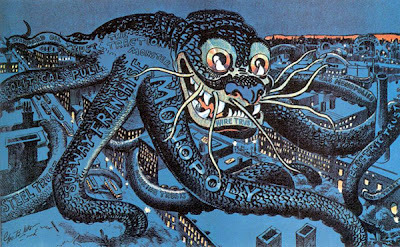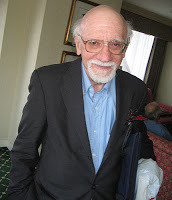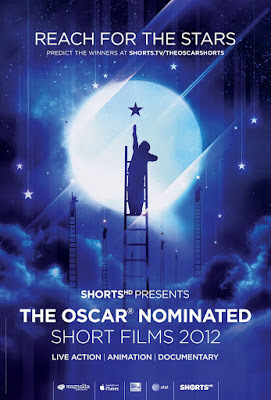Michael Swanwick's Blog, page 199
February 27, 2012
Dead People's Houses
.

I heard a song once, called "Dead People's Houses," about going to estate sales, which celebrated the combination of looking for bargains and snooping in other people's lives. It ended with the line, "We'll make some young strangers happy when we die." Which seemed a positive take on the whole thing.
Marianne and I went to an estate auction this weekend, run by Barry S. Slosberg, Auctioneer, who's something of a fixture in Philadelphia. About an hour into the event, an unanticipated snow squall blew up and Barry Slosberg (above) ripped through the items displayed outdoors with efficiency and good humor.
Marianne bought a pair of lawn chairs an I bought a master plumber's cabinet, which he banged together to hold screws, plumber's candles and other supplies. I have plans for that cabinet, which I'll tell you about in one or three years when they come to fruition.
And, oh yeah. The owner of the house died of old age and, from what we could conclude from our snooping, lead a good life. Kudos to him.
*

I heard a song once, called "Dead People's Houses," about going to estate sales, which celebrated the combination of looking for bargains and snooping in other people's lives. It ended with the line, "We'll make some young strangers happy when we die." Which seemed a positive take on the whole thing.
Marianne and I went to an estate auction this weekend, run by Barry S. Slosberg, Auctioneer, who's something of a fixture in Philadelphia. About an hour into the event, an unanticipated snow squall blew up and Barry Slosberg (above) ripped through the items displayed outdoors with efficiency and good humor.
Marianne bought a pair of lawn chairs an I bought a master plumber's cabinet, which he banged together to hold screws, plumber's candles and other supplies. I have plans for that cabinet, which I'll tell you about in one or three years when they come to fruition.
And, oh yeah. The owner of the house died of old age and, from what we could conclude from our snooping, lead a good life. Kudos to him.
*
Published on February 27, 2012 17:48
February 24, 2012
Why Monopolies Are Bad
.

A while back, a publishing insider explained to me in detail how the history of Twenty-FIrst Century publishing to date can be read as an epic battle between Google and Amazon over who gets to control everything. It was terrifying to hear.
Google made its big move by preemptively claiming the right to publish and sell electronic versions literally every book that had ever been or ever will be written without asking permission of the copyright owners. The courts squashed that one. Now Amazon is responding by trying to dictate the prices and profit margins of every publisher who sells through them. The entire story is big, complicated, and ugly. But one aspect of it is simple enough: Small and medium presses operate on a thin profit line. Squeeze them hard enough and a lot of them will go under.
Today I received the following letter from Jill Roberts, Managing Editor of Tachyon Publications, a very fine small press that publishes (among many other books) most of my short fiction collections:
Dear Tachyon authors, artists, and friends--
Regrettably, due to a contract dispute, our e-book titles are currently not available at Amazon.com. Amazon.com made a unilateral decision to remove over 5000 Kindle e-books from its site this week, including all Tachyon e-books.
The issue is the Kindle contract between our book distributor, IPG, and Amazon. IPG's Kindle contract came up for renewal. Amazon took the opportunity to ask for yet another larger cut of Kindle book sales. IPG took a stand and refused. In response, Amazon.com has pulled all of the e-books by IPG's publishers.
While this means for the time being that you won't be able to buy Tachyon e-books at Amazon.com, there are many other excellent options. Our books are still available in print and in EPUB and PDF electronic editions from local independent bookstores (find them on www.indiebound.org), and on web sites such as Barnes & Noble (www.barnesandnoble.com), the Sony bookstore (www.ebookstore.sony.com), Apple's iTunes, Google Books and elsewhere. You can also purchase Kindle and other e-book formats from our friends at Weightless Books (www.weightlessbooks.com). Free software programs such as Calibre (www.calibre-ebook.com) can be used to convert non-Kindle e-files to Kindle readable formats. Kindle Fire users can download programs from the Amazon app store to read non-Kindle formats.
Please feel free [to] spread the word about this unfortunate situation and let me know if you have any questions. This fight between Amazon and IPG is another chapter in Amazon's continuing effort to control the marketplace, which is ultimately a bad thing for publishers and authors. For now there are only two certainties: change in the publishing industry is inevitable, and Tachyon will do its best to continue to publish the most thought-provoking and challenging speculative fiction available.
Regards,Jill RobertsManaging EditorTachyon Publications www.tachyonpublications.com smart science fiction & fantasy
If you dislike corporate bullying, and would like to register your opinion, I have a simple and easy proposal: Buy an excluded e-book from one of the venues Jill mentioned. It doesn't have to be from Tachyon -- some five thousand e-books have been expunged from Amazon. You've got a lot of choice.
And let's face it: You don't own enough books.
You can read about the issue here.
*
Published on February 24, 2012 13:37
February 23, 2012
Short Fiction Review: "Bonding WIth Morry" by Tom Purdom
.
 It's become something of a ritual. Whenever a copy of
Asimov's Science Fiction
arrives with a story by Tom Purdom in it, I read Tom's story first (unless there's one of my own in the same issue, of course, in which case I read Tom's second). Then, on finishing it, I say aloud, "Why don't more people write science fiction like this?"
It's become something of a ritual. Whenever a copy of
Asimov's Science Fiction
arrives with a story by Tom Purdom in it, I read Tom's story first (unless there's one of my own in the same issue, of course, in which case I read Tom's second). Then, on finishing it, I say aloud, "Why don't more people write science fiction like this?"
In "Bonding With Morry," what I mean by "this"is fiction based on thoughtful, intelligent analysis of technology that doesn't yet exist but probably will soon. In this case, robots, used (among other purposes) as devices to enable aging and increasingly feeble people to maintain an independent existence on their own.
At the story's opening Morry, who is just beginning to require such a device, is selecting its appearance. He has to fight to get one with wheels instead of legs, camera-lens eyes, a speaker with a grill for a mouth, and a metal cylindrical body instead of a close approximation of a human being. His problem is that he wants his robot, Clank, to look like a machine so he'll remember to treat it as one -- and everybody else wants it to look like a companion, someone he can bond with.
Over the course of the story, Morry fights several small battles to keep from being forced to accept a machine as his closest friend. He suffers small defeats. He's forced to give the robot a human-ish face and to rename it Clark. But at the end, as he's dying, he's able to pass along a compliment to the robot's designers and programmers.
The heart of the story lies in an exchange with Morry's daughter Julie, shortly after he's had a stroke:
Here is the gist of the story. Treating devices as devices allows Morry to treat people as people. A woman who drops Morry as a friend because he refuses to "bond" with Clank is doing just the opposite.
When Morry dies, he does so with a clear-headed understanding of the difference between friends and tools and the value of each. It's a small but very real triumph of the human spirit.
And, as I said earlier, it's the kind of story that a lot more people ought to write.
*
 It's become something of a ritual. Whenever a copy of
Asimov's Science Fiction
arrives with a story by Tom Purdom in it, I read Tom's story first (unless there's one of my own in the same issue, of course, in which case I read Tom's second). Then, on finishing it, I say aloud, "Why don't more people write science fiction like this?"
It's become something of a ritual. Whenever a copy of
Asimov's Science Fiction
arrives with a story by Tom Purdom in it, I read Tom's story first (unless there's one of my own in the same issue, of course, in which case I read Tom's second). Then, on finishing it, I say aloud, "Why don't more people write science fiction like this?"In "Bonding With Morry," what I mean by "this"is fiction based on thoughtful, intelligent analysis of technology that doesn't yet exist but probably will soon. In this case, robots, used (among other purposes) as devices to enable aging and increasingly feeble people to maintain an independent existence on their own.
At the story's opening Morry, who is just beginning to require such a device, is selecting its appearance. He has to fight to get one with wheels instead of legs, camera-lens eyes, a speaker with a grill for a mouth, and a metal cylindrical body instead of a close approximation of a human being. His problem is that he wants his robot, Clank, to look like a machine so he'll remember to treat it as one -- and everybody else wants it to look like a companion, someone he can bond with.
Over the course of the story, Morry fights several small battles to keep from being forced to accept a machine as his closest friend. He suffers small defeats. He's forced to give the robot a human-ish face and to rename it Clark. But at the end, as he's dying, he's able to pass along a compliment to the robot's designers and programmers.
The heart of the story lies in an exchange with Morry's daughter Julie, shortly after he's had a stroke:
"Your counselor is just trying to help you. And that thing is pretty ugly. I wouldn't want it hanging around my bedroom after dark."
"They're . . . all . . . like that. Underneath."
"And we're all skeletons and skulls underneath."
"Personalities . . . Julie. Real . . . feelings."
"But how do you know that, Dad? How do you know I have feelings?"
Morry's mouth twisted into a caricature of a smile. "I know . . . how you . . . started. I was . . . there."
Here is the gist of the story. Treating devices as devices allows Morry to treat people as people. A woman who drops Morry as a friend because he refuses to "bond" with Clank is doing just the opposite.
When Morry dies, he does so with a clear-headed understanding of the difference between friends and tools and the value of each. It's a small but very real triumph of the human spirit.
And, as I said earlier, it's the kind of story that a lot more people ought to write.
*
Published on February 23, 2012 07:57
February 22, 2012
Spring Is Icumin In . . .
.

I confess. I wrote three or four pages of a Darger and Surplus story today and then played hooky. I went to the Morris Arboretum, fool that I am, looking for spring.
And I found it. There among the austerely beautiful and leafless trees were drifts of irises, demure clusters of snowdrops, dense gatherings of winter aconites, hellebores, and the occasional deludedly optimistic clump of daffodils. The weather was warm and there were people drifting through the arboretum looking happy and a little stunned.
And it's still the middle of February.
Which means that the next few weeks are going to break my heart.
But what the heck. It's a small price to pay for an afternoon of faux spring.
*

I confess. I wrote three or four pages of a Darger and Surplus story today and then played hooky. I went to the Morris Arboretum, fool that I am, looking for spring.
And I found it. There among the austerely beautiful and leafless trees were drifts of irises, demure clusters of snowdrops, dense gatherings of winter aconites, hellebores, and the occasional deludedly optimistic clump of daffodils. The weather was warm and there were people drifting through the arboretum looking happy and a little stunned.
And it's still the middle of February.
Which means that the next few weeks are going to break my heart.
But what the heck. It's a small price to pay for an afternoon of faux spring.
*
Published on February 22, 2012 16:32
February 21, 2012
The End of History As We Know It
.
What kind of people would make a 112-proof beer -- and then bottle it inside a taxidermy stoat?
Young males, obviously. It probably helps to be Scottish too.
And meanwhile in Sweden . . .
Two beer reviewers spent a small fortune (probably around a thousand bucks) so they could pass judgment on The End of History. They give it surprisingly high marks.
Although their conclusion that it's "not a novelty item" is a little hard to believe.
*
What kind of people would make a 112-proof beer -- and then bottle it inside a taxidermy stoat?
Young males, obviously. It probably helps to be Scottish too.
And meanwhile in Sweden . . .
Two beer reviewers spent a small fortune (probably around a thousand bucks) so they could pass judgment on The End of History. They give it surprisingly high marks.
Although their conclusion that it's "not a novelty item" is a little hard to believe.
*
Published on February 21, 2012 13:58
February 20, 2012
For Those Who Believe in Livres Sans Frontieres . . .
.[image error]
My good pal, superstar editor Ellen Datlow, has taken in a dip in the e-book biz with Wild Justice , an anthology of stories of revenge and vengeance -- which is to say, the core stuff of fiction. This is a book originally published in the UK as Lethal Kisses and never since published in the US or anywhere else.
Now, either you know Ellen and are checking your bookshelves right now to see if you have this particular anthology or not, or you do not. And if you do not, you should look into her work right now. Because she's published a myriad volumes of fantasy, dark fantasy, and horror and mirabile dictu not a clunker in the batch.
For those in the second group, I can only say:
1) Your local library2) Interlibrary loan3) Your local bookstore4) ABEbooks
Or, what the heck, just buy Wild Justice . You can find it on Ash Tree here. Or at Amazon here.
Full disclosure: The anthology contains "Ships," which I wrote with Jack Dann, a work so bleak that damned souls in Hell cry out in pain on reading it Jack kept trying to throw in redemption, grace, the least shred (for God's sake!) of light or hope. But "Fuck that noise!" I cried, and drove the mighty ship of our narrative straight into the abyss.
All this and many other stories nearly as brilliant for only nine dollars. I am not making this up. The cool people haven't read this sentence yet, because they're busily downloading the book.
*

My good pal, superstar editor Ellen Datlow, has taken in a dip in the e-book biz with Wild Justice , an anthology of stories of revenge and vengeance -- which is to say, the core stuff of fiction. This is a book originally published in the UK as Lethal Kisses and never since published in the US or anywhere else.
Now, either you know Ellen and are checking your bookshelves right now to see if you have this particular anthology or not, or you do not. And if you do not, you should look into her work right now. Because she's published a myriad volumes of fantasy, dark fantasy, and horror and mirabile dictu not a clunker in the batch.
For those in the second group, I can only say:
1) Your local library2) Interlibrary loan3) Your local bookstore4) ABEbooks
Or, what the heck, just buy Wild Justice . You can find it on Ash Tree here. Or at Amazon here.
Full disclosure: The anthology contains "Ships," which I wrote with Jack Dann, a work so bleak that damned souls in Hell cry out in pain on reading it Jack kept trying to throw in redemption, grace, the least shred (for God's sake!) of light or hope. But "Fuck that noise!" I cried, and drove the mighty ship of our narrative straight into the abyss.
All this and many other stories nearly as brilliant for only nine dollars. I am not making this up. The cool people haven't read this sentence yet, because they're busily downloading the book.
*
Published on February 20, 2012 00:53
February 17, 2012
Steampunk Elephants: Some Early Lessons Learned
Okay, it's still a long way to a true robotic elephant. But who can doubt that it's on the way? Human beings want such things. And we tend to get what we want.
For that matter, who could resist a ride atop the arachnid splendor that is La Machine? (Below.) It, and the elephant, are still essentially articulated parade floats. But a tremendous amount of R&D money is going into robots that can walk, carry guns up mountainsides, and shoot people that we don't like without risking American lives. The earliest spinoffs are likely to be amusement parks rides that can come to your neighborhood.
Sometimes you have to squint a little to see it, but the future is only minutes away.
*
Published on February 17, 2012 09:51
February 15, 2012
Short Oscar 'Toons
.

I'm on the road again and away from my notes, so I can't give a detailed review of The Oscar Nominated Short Films 2012 . But the short version is that this year's nominees are 1) well worth seeing, and 2) not as good as last year's.
Of course last year's crop included Shaun Tan's heart-tugging The Lost Thing, which I'm told was a ten-year labor of love, and every minute of it well spent. But let's not hold that against this year's entries.
Of this year's batch, the most intelligent was Wild Life , a very odd number about young upper class men in 1909 leaving England to seek adventure in Canada and one in particular finding himself overmatched by the reality. Purely as animation, I thought that Nullarbor by Patrick Sarell, a tale of road rage on Australia's loneliest road was tops -- but it didn't make the final cut. Pixel's Luna was once upon a time -- a very long time ago indeed -- based on my favorite story from Italo Calvino's Cosmicomics. Utterly and completely changed, all it retains of the original is the notion of climbing to the Moon on long ladders from small boats in the ocean. Pixel's version is charming, but Calvino's was better.
But the odds-on likeliest to win is The Fantastic Flying Books of Mr. Morris Lessmore by William Joyce and Brandon Oldenburg. The animation is whimsical, the hero is based on Buster Keaton, and it has flying books. How can it lose? It is, alas, allegorical. But I doubt that will hurt it.
And it's been posted to YouTube. It's a hard life being an animator.
*

I'm on the road again and away from my notes, so I can't give a detailed review of The Oscar Nominated Short Films 2012 . But the short version is that this year's nominees are 1) well worth seeing, and 2) not as good as last year's.
Of course last year's crop included Shaun Tan's heart-tugging The Lost Thing, which I'm told was a ten-year labor of love, and every minute of it well spent. But let's not hold that against this year's entries.
Of this year's batch, the most intelligent was Wild Life , a very odd number about young upper class men in 1909 leaving England to seek adventure in Canada and one in particular finding himself overmatched by the reality. Purely as animation, I thought that Nullarbor by Patrick Sarell, a tale of road rage on Australia's loneliest road was tops -- but it didn't make the final cut. Pixel's Luna was once upon a time -- a very long time ago indeed -- based on my favorite story from Italo Calvino's Cosmicomics. Utterly and completely changed, all it retains of the original is the notion of climbing to the Moon on long ladders from small boats in the ocean. Pixel's version is charming, but Calvino's was better.
But the odds-on likeliest to win is The Fantastic Flying Books of Mr. Morris Lessmore by William Joyce and Brandon Oldenburg. The animation is whimsical, the hero is based on Buster Keaton, and it has flying books. How can it lose? It is, alas, allegorical. But I doubt that will hurt it.
And it's been posted to YouTube. It's a hard life being an animator.
*
Published on February 15, 2012 17:10
February 14, 2012
Love in all its Manifest Forms
.

Forget Halloween. Valentine's Day is the scariest holiday of the year. Because it commemorates the moment when you gather up all your courage and admit to somebody that you've fallen in love -- to their face. That's terrifying.
Sometimes the risk pays off. Sometimes your intended is creeped out by the very thought and you lose a friend. And sometimes it starts out fine and goes terribly, terribly wrong.
For all who have loved and temporarily won and then lost, there's the Museum of Broken Relationships in Zagreb, Croatia. It contains mementoes from loves that failed. The garden gnome that one woman threw at her former boyfriend's windshield. The ax another woman used to chop up all of her ex-girlfriend's furniture. Ahhh, memories!
You can read about it here.
Incidentally . . .
If you've never been to Croatia, you're missing a wonderful experience. Sipping coffee or black wine in a sidewalk cafe on the Bloody Bridge in Zagreb, renting a room by the Silver Gate inside Diocletian's Palace in Spit, exploring the walled city of Dubrovnik, exploring the hundreds of waterfalls of Plitvice . . . Oh, man. And the food there is terrific.
Come to think of it, if you've got that kind of money, a pair of tickets to Croatia would make a great Valentine's Day present. Only, for a little later in the year, I think. Sometime in the spring or summer.
This has been an unsolicited testimonial. In a better world, the Croatian National Tourist Board would have bribed me to write all that. With tickets to Croatia.
*

Forget Halloween. Valentine's Day is the scariest holiday of the year. Because it commemorates the moment when you gather up all your courage and admit to somebody that you've fallen in love -- to their face. That's terrifying.
Sometimes the risk pays off. Sometimes your intended is creeped out by the very thought and you lose a friend. And sometimes it starts out fine and goes terribly, terribly wrong.
For all who have loved and temporarily won and then lost, there's the Museum of Broken Relationships in Zagreb, Croatia. It contains mementoes from loves that failed. The garden gnome that one woman threw at her former boyfriend's windshield. The ax another woman used to chop up all of her ex-girlfriend's furniture. Ahhh, memories!
You can read about it here.
Incidentally . . .
If you've never been to Croatia, you're missing a wonderful experience. Sipping coffee or black wine in a sidewalk cafe on the Bloody Bridge in Zagreb, renting a room by the Silver Gate inside Diocletian's Palace in Spit, exploring the walled city of Dubrovnik, exploring the hundreds of waterfalls of Plitvice . . . Oh, man. And the food there is terrific.
Come to think of it, if you've got that kind of money, a pair of tickets to Croatia would make a great Valentine's Day present. Only, for a little later in the year, I think. Sometime in the spring or summer.
This has been an unsolicited testimonial. In a better world, the Croatian National Tourist Board would have bribed me to write all that. With tickets to Croatia.
*
Published on February 14, 2012 08:06
February 13, 2012
Fire & Ice
.
This is what folks do in my 'hood for entertainment. They build an ice chimney around a stack of palettes down by the canal and set it on fire.
This was the Friday night kickoff for Manayunk's ice-carving festival. There are still ice sculptures up and down Main Street.
Oh . . . and my apologies for the Johnny Cash song. Not the best possible choice, I think. Not that I had any way over it.
*
This is what folks do in my 'hood for entertainment. They build an ice chimney around a stack of palettes down by the canal and set it on fire.
This was the Friday night kickoff for Manayunk's ice-carving festival. There are still ice sculptures up and down Main Street.
Oh . . . and my apologies for the Johnny Cash song. Not the best possible choice, I think. Not that I had any way over it.
*
Published on February 13, 2012 06:08
Michael Swanwick's Blog
- Michael Swanwick's profile
- 546 followers
Michael Swanwick isn't a Goodreads Author
(yet),
but they
do have a blog,
so here are some recent posts imported from
their feed.



